MyLand Secures $23 Million to Transform Soil Health
 Soil health company MyLand has secured $23 million in funding in a round led by Proterra Investment Partners LP with the goal of supporting MyLand’s growth across the U.S. and into international markets to transform soil health.
Soil health company MyLand has secured $23 million in funding in a round led by Proterra Investment Partners LP with the goal of supporting MyLand’s growth across the U.S. and into international markets to transform soil health.
“This funding, secured in a highly challenging market and at an incremental valuation, is a testament to the growing recognition that soil health is foundational to agricultural success,” said Dane Hague, Co-Founder and CEO of MyLand. “The proven results of our service—delivering strong economic returns to farming partners across geographies, soil types, and crops—demonstrate the critical role MyLand plays in modern agriculture. Soil is an essential natural resource, and our unique ability to rapidly rebuild it has far-reaching benefits: improved water and nutrient efficiency, enhanced nutrition, greater climate resilience, and better livelihoods for the farmers and ranchers who provide the food on our tables.”
MyLand’s innovative Soil as a Service™ uses live, native microalgae to rejuvenate soil health and improve productivity, profitability, and sustainability for growers, integrating seamlessly into existing farm operations. MyLand’s solution offers a simple and scalable path for farmers to improve soil health and produce more with fewer resources, contributing to a more resilient and sustainable food system.
This $23 million financing follows a $20 million Hardware as a Service loan facility from PaceZero Capital Partners in October 2024. Additional investors in the round included existing shareholders, namely Climate IC and the Borden Family Trust, multiple Climate IC LPs, and FarmClub Investments. Collectively, this funding will enable MyLand to scale operations and expand its reach in key agricultural regions. With a strong presence in California, Texas, Arizona, Washington, Oregon, and Alberta, MyLand is poised to deepen its impact on North American agriculture while exploring opportunities for growth in new markets.
Vilsack Named CEO of World Food Prize Foundation
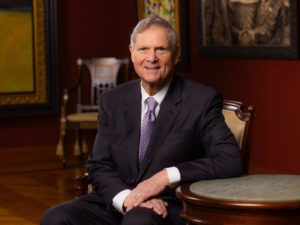 He just turned 74 last month, but former Secretary of Agriculture Tom Vilsack has a new job already, as CEO of the World Food Prize Foundation, located in Des Moines. Beginning March 1, “Vilsack will leverage his extensive leadership and diplomatic experience to enhance the Foundation’s global impact in food security and sustainable agriculture.”
He just turned 74 last month, but former Secretary of Agriculture Tom Vilsack has a new job already, as CEO of the World Food Prize Foundation, located in Des Moines. Beginning March 1, “Vilsack will leverage his extensive leadership and diplomatic experience to enhance the Foundation’s global impact in food security and sustainable agriculture.”
Vilsack’s appointment builds on his longstanding relationship with the Foundation, where he served on the Council of Advisors and Board of Directors, offering invaluable insights that have shaped its mission and initiatives. He has served two terms as U.S. Secretary of Agriculture and two terms as governor of Iowa, in addition to involvement with several organizations focused on agricultural trade and sustainable food production. His exposure and collaboration with the Foundation over the past two decades reflects his life-long dedication to advancing agriculture and food security.
“The World Food Prize Foundation has a phenomenal and important history of advancing innovation to address global food security,” said Vilsack. “I am honored to have the opportunity to build on that legacy, working closely with Mashal Husain and the talented team to extend the Foundation’s impact worldwide. I look forward to forging new partnerships, helping bring to life new solutions in the fight against hunger and championing efforts to ensure a sustainable and equitable food system for future generations.”
Clean Fuels Chair Confident Moving Forward
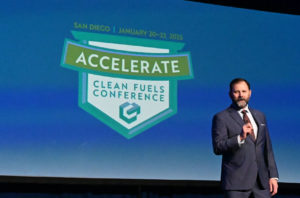 Kent Engelbrecht serves as director of North American Biodiesel Trade Policy for ADM, one of the world’s leading biodiesel producers, oilseed crushers, and suppliers of soy and canola feedstocks for the renewable liquid fuels industry.
Kent Engelbrecht serves as director of North American Biodiesel Trade Policy for ADM, one of the world’s leading biodiesel producers, oilseed crushers, and suppliers of soy and canola feedstocks for the renewable liquid fuels industry.
Engelbrecht is also Chairman of the Clean Fuels America Alliance, and he is Chairman of the California Advanced Biofuels Alliance (CABA), as well as Advanced Biofuels Canada (ABFC). He was chair of the National Biodiesel Board in 2017 before it became Clean Fuels at a time that was very similar to today.
“It was another difficult time in the industry,” he said in remarks at the Clean Fuels Conference in San Diego last week. “In many ways, it was similar to what we’re facing now. We’ve got headwinds generated by issues that aren’t entirely within our control. Back then we had issues with tax credits, RFS, and we weren’t really sure what to expect with the new president for the next 4 years. Sound familiar?”
Engelbrecht says it created a situation where the industry had to go beyond soybeans and build a coalition of complimentary feedstocks and technologies.
“And we’ve created our path forward. We’ve established renewable diesel as an important part of the country’s energy supply and laid the groundwork for sustainable aviation fuel. Dozens of states across the country have added new clean fuel incentives,” said Engelbrecht. “I look forward to working together as we write this next chapter together.”
Listen to Engelbrecht’s remarks and interview:
Clean Fuels remarks - Kent Engelbrecht, ADM (14:04)
Industry Ag News 1/24
USDA Nominee Faces Senate Ag Committee
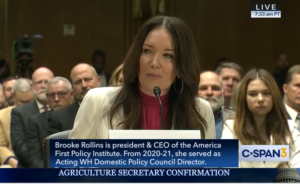 The Senate Agriculture Committee hosted the confirmation hearing for President Donald Trump’s nominee for Secretary of Agriculture on Thursday.
The Senate Agriculture Committee hosted the confirmation hearing for President Donald Trump’s nominee for Secretary of Agriculture on Thursday.
Brooke Rollins is the president and CEO of the America First Policy Institute and worked in the previous Trump administration in the White House Office of American Innovation and United States Domestic Policy Council. Prior to that, she was the president and CEO of the Texas Public Policy Foundation.
In her opening statement, Rollins outlined her key priorities for day one if she is confirmed. “First, we must ensure the disaster and economic assistance authorized by Congress is deployed
as quickly and efficiently as possible,” said Rollins. “Second, we must work to immediately and comprehensively get a handle on the state of animal-disease outbreaks,including H5N1 and New World Screwworm.”
Other priorities including working to “realign and rethink” the USDA, and providing the “timely and technical assistance” to ensure a farm bill that moves forward.
Rollins hearing - priorities (2:21)Precision Ag News 1/23
Dr. Jonathan Wendel Receives Cotton Genetics Research Award
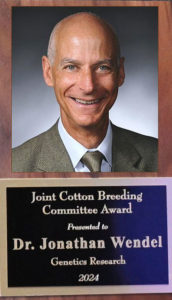 Dr. Jonathan Wendel, Distinguished Professor at Iowa State University was announced as the 2024 Cotton Genetics Research Award recipient last week during the 2025 Beltwide Cotton Conferences in New Orleans. Wendel, who was not present to accept the award, was selected by the Joint Cotton Breeding Committee and received a plaque with a monetary award.
Dr. Jonathan Wendel, Distinguished Professor at Iowa State University was announced as the 2024 Cotton Genetics Research Award recipient last week during the 2025 Beltwide Cotton Conferences in New Orleans. Wendel, who was not present to accept the award, was selected by the Joint Cotton Breeding Committee and received a plaque with a monetary award.
Dr. Wendel earned his bachelor’s degree from the University of Michigan and his master’s and Ph.D. from University of North Carolina. His career began in 1983 working as a geneticist for USDA’s Agricultural Research Service in North Carolina. In 1986, Dr. Wendel transitioned to academia and has been heavily involved with research, teaching, and mentorship at Iowa State University since. During his time with Iowa State University, Dr. Wendel has collaborated with researchers internationally as well as held administrative roles.
Over his career, Dr. Wendel has authored or co-authored 340 scientific journal articles and book chapters to date with over 54,000 citations and a Google Scholar h-index of 112. A majority of Dr. Wendel’s research and subsequent publications has been related to cotton genetics. His early work helped to explain the genomic underpinnings of cotton domestication and diversification and more recent research efforts have led to more practical tools for improving cotton as an agricultural crop.
Clean Fuels Celebrates Conference in Important Market
 The 2025 Clean Fuels Conference is being held this week in a very important market for biodiesel, renewable diesel, and sustainable aviation fuel – California.
The 2025 Clean Fuels Conference is being held this week in a very important market for biodiesel, renewable diesel, and sustainable aviation fuel – California.
“Biodiesel and renewable diesel have displaced 75% of all diesel sold in the state,” said Clean Fuels CEO Donnell Rehagen in his opening remarks Tuesday. “It’s now harder to find diesel fuel in California than our fuels. Our industry is responsible for 45% of California’s progress under the Low Carbon Fuel Standard so far.”
However, Rehagen says the accelerating growth in the industry has created a unique challenge, the need for more feedstock.
“Our industry’s rapid growth, more than doubling production capacity in the last four years, has outpaced domestic feedstock availability – at least for now. By our calculations, current volumes of domestic feedstocks would support about 3.3 billion gallons of fuel production,” said Rehagen. “As we’ve seen growing amounts of imported feedstocks coming in to fill the demand, it has generated angst with domestic feedstock growers and processors.”
Rehagen says it will be an active and challenging year for the clean fuels industry. “We must remain unified…We will need engagement from this industry as the impacts of 45z begin to take effect, and RVOs are set…all under a new administration. We’re going to need everybody to participate. If we win on these two things, 2025 and 2026 could be among our finest years yet.”
Listen to Rehagen’s comments:
Clean Fuels opening remarks Donnell Rehagen, CEO (27:21)
CattleCon to Feature World Without Cows Screening
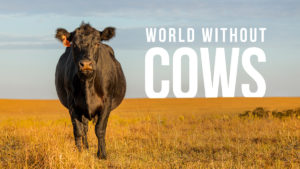 What would a world without cows be like? It would certainly be a different world for the people who raise cattle, so Alltech is offering an exclusive screening of the World Without Cows documentary at the National Cattlemen’s Beef Association (NCBA) Cattle Industry Convention & Trade Show, CattleCon. The screening will be held on Tuesday, Feb. 4 at 7:30 p.m.– 9:00 p.m. CST in the General Session Room of the Henry B. González Convention Center in San Antonio, TX.
What would a world without cows be like? It would certainly be a different world for the people who raise cattle, so Alltech is offering an exclusive screening of the World Without Cows documentary at the National Cattlemen’s Beef Association (NCBA) Cattle Industry Convention & Trade Show, CattleCon. The screening will be held on Tuesday, Feb. 4 at 7:30 p.m.– 9:00 p.m. CST in the General Session Room of the Henry B. González Convention Center in San Antonio, TX.
“World Without Cows” is a feature-length 85-minute documentary that was filmed in 40 global locations over three years, exploring the impact of cattle on economies, ecosystems, cultures and human nutrition. It is written and directed by two award-winning journalists, Michelle Michael and Brandon Whitworth who have spent the past three years exploring a fascinating question: Are we better off in a world without cows? This thought-provoking documentary dives into the cultural, societal, and environmental significance of cattle, examining their vital role in nourishing the world and combating climate change.
To find out more about this documentary, we talked with the filmmakers to learn their journey that took them to 22 different countries and five different continents. “It was over 300 conversations with experts in various fields, farmers, scientists, researchers, climatologists around the world kind of asking those really basic questions of what is a world without cows look like to you?” says Whitworth.
“Tveryone will tell you that cows make methane. And guess what? They do. Not a single person we talked to denied that cows do have an impact on our climate,” said Michael. “What we found was that it was a much smaller impact when you look at the way methane is measured. But I think the most surprising thing is it’s not just that cows have an impact on the climate. They have this incredible potential to help us capture carbon and really save the planet for the future.”
Listen to the interview here:
World Without Cows filmmakers Michelle Michael and Brandon Whitworth (17:56)
For more information, visit worldwithoutcows.com. Also, be sure to follow “World Without Cows” on Facebook, X, Instagram, LinkedIn, and TikTok, and follow filmmakers Michelle Michael (@farmfilmmaker) and Brandon Whitworth (@theagstoryteller) for their unique insights.
You can also hear more from Michelle and Brandon about their experience in this video, “The Making of World Without Cows”



